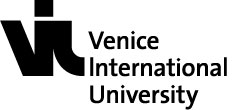Is personalization of power as a key feature of populism?
Jonathan Franco
The rise of the far-right parties in Europe, the election of the American President Donald Trump and the approval of the Brexit through the referendum are all symptoms of our contemporary populistic political age: many scholars agree on that point. 
Despite the knowledge of the global wave of populism, many difficulties are faced when attempting to address academically the phenomenon, including both empirical data and clear descriptions. What is populism exactly? Elements that can be addressed are: direct communications of the populist with the masses, the call for unity and condemnation of political opposition, exclusion of targeted social groups, oversimplification of politics and attacks on the traditional democratic proceedings. Yet even this exhaustive list fails to provide a universal description for a populist.
Jägers & Walgrave (2007) have delineated populism with three main aspects: identification with the people, rooted in anti-elite feelings, exluding specific categories of people from the monolithic society. But a slightly different interpretation of these three pillars could be: a thin-centered ideology, a separation of the “pure people” from the “corrupt elite”, and the claim that politics should express the “general will” (Mudde & Kaltwasse, 2012). The latter definition is not in contradiction with the first one, yet it is by no means identical. What is more, both provide only a partial explanation of the topic.
Could you discover more from exploring the characteristics of the Populist Politician? This is what we focused on in the VIU course “Patterns of Democracy”. We named attributes such as the personalization of politics, that is to say, when the politician replaces the ‘we’ with ‘me’. The image of the leader becomes the product sold to the masses – rather than representing the party, agenda or ideology. In populist politics, emotion is a key factor – and an individual human being always evokes more emotions than a group, an ideology or an institution.
Can populism really be comprehensively defined? Can there be an interpretation accepted by everyone? I am afraid I have to conclude that probably not. It seems that populism is an evasive term by nature, one which is doomed to be clear in its general framework, but obscured in the details. Maybe it is us, students and teachers, who should forgo the conventional empiricism when dealing with such a vague phenomenon, and accept its complexity as an axiom.





















